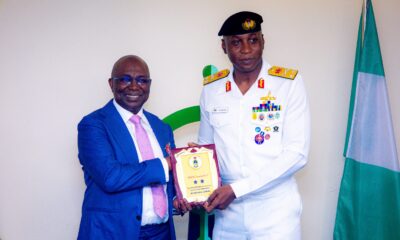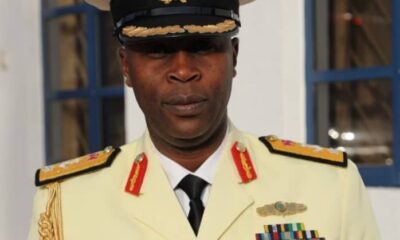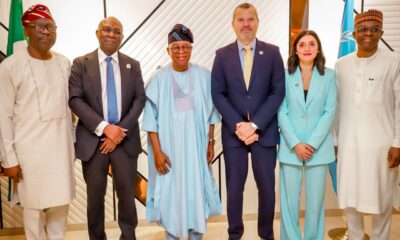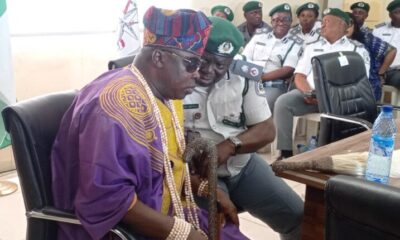Maritime
How Nigerian Navy Visibility In GOG Dismantled War Risk Concerns
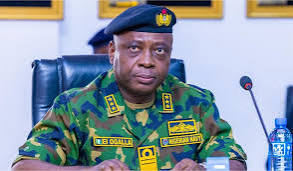
BY GBOGBOWA GBOWA
The Maritime Reporters’ Association of Nigeria (MARAN) Annual Maritime Lecture (MAMAL 2025) has exposed how the Nigerian Navy’s strategic presence in the Gulf of Guinea (GoG) has led to a dramatic reduction in piracy, irrespective of the lingering controversy around war risk insurance penalties imposed on Nigeria.
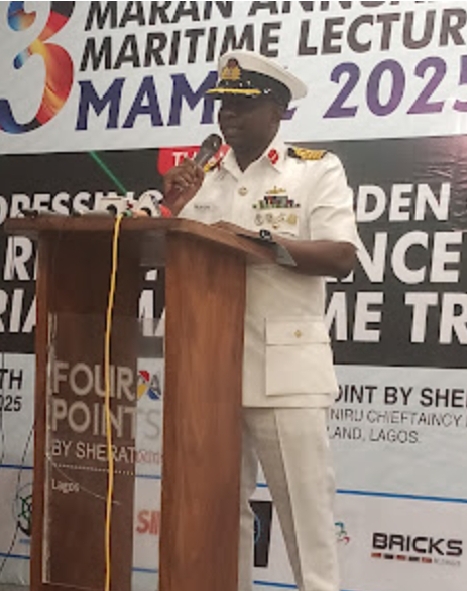
Capt. Oginni
For years, Nigeria’s maritime domain spanning 420 nautical miles of coastline and an Exclusive Economic Zone of 84,000 square nautical miles, has been both a treasure trove and a battleground. Rich in oil, gas, fish stocks, and shipping infrastructure, it is believed that the region is the nation’s economic heartbeat. This economic promise has of recent however become theatre of piracy and maritime crime, particularly in the Gulf of Guinea (GOG).
Beginning from the late 2010s, the GoG became notorious for piracy, with Nigeria as the epicenter. Attacks surged, kidnappings for ransom escalated, and global insurers slapped Nigeria with war risk premiums, branding its waters as perilous. But the Nigerian Navy (NN) refused to let this narrative define the nation.
Through a series of bold and coordinated operations—AWATSE, CALM WATERS, TSARE TEKU, WATER GUARD II, and DELTA SANITY, the NN transformed its maritime policing strategy. These operations weren’t just symbolic but were backed by real muscle, said the Flag Officer Commanding, Nigerian Navy, Western Naval Headquarters, Rear Admiral Gregory Oamen.
Speaking during the MAMAL 2025 with the theme ‘Addressing the Burden of War Risk Insurance on Nigeria’s Maritime Trade’, Oamen while enumerating the strength of the NN highlighted its presence in the GOG that has helped in degrading the activities of piracy and other related maritime crimes.
Oamen who was represented by Captain Olarewaju Oginni listed 14 new vessels acquired in the last decade, two 76m High Endurance Offshore Patrol Vessels (OPVs) launched in 2023 and 2024, which together put in a total of 36,809 hours of patrols logged in 2022 alone; leading to a staggering drop in piracy activities.
Oamen explained that while 191 suspects were arrested in 2022, another 80 was apprehended in 2023, aiding the drop from 48 attacks in 2018 to just 1 attempted case in 2024. He explained that by 2022, Nigeria was delisted from the International Maritime Bureau (IMB) piracy-prone countries, while in 2023, the International Bargaining Forum (IBF) removed Nigeria from its “risk maritime nations” list.
Together with other participants at the MAMAL 2025 lecture, Oamen expressed misgiving about the continued imposition of the war risk insurance penalty.

Despite the gains from the NN impressive outing, Nigeria continues to grapple with the legacy of its past. Many international insurers remain cautious, citing residual risks and outdated perceptions. Participants at the event say war risk premiums, extra insurance costs levied on vessels operating in high-risk zones still apply in some cases, penalizing Nigerian ports and shipping companies.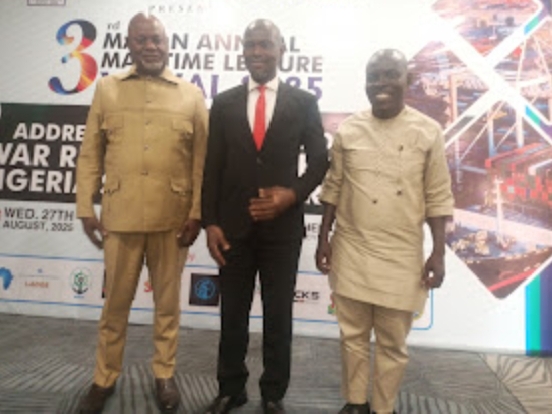
This has sparked frustration among stakeholders. With piracy nearly eradicated and maritime traffic surging (from 123 daily ship calls in 2021 to 145 in 2023), many argue that the continued imposition of war risk insurance is unjustified and economically damaging.
Overall, the Navy’s success has had tangible economic benefits with fishing GDP believed to have risen from ₦12 billion to ₦15 billion, with offshore exploration and deep-sea mining thriving, boosting confidence in the Nigerian entire maritime ecosystem.
Yet, the war risk label remains a thorn in Nigeria’s side—a relic of a bygone era that threatens to undermine the very progress the Navy has fought to secure.
The Nigerian Navy’s transformation of the GOG is a textbook case of strategic intervention, regional collaboration, and data-driven success. Participants at the conference urged global insurers to update their risk assessments to reflect today’s reality and to cease forthwith from dwelling into yesterday’s fears.
MARAN President, Mr. Ewrhujakpor Godfrey Bivbere who set the tone of discussion said the time to lift the anchor of war risk penalty against Nigeria must be now. In a speech that blended urgency with optimism, Bivbere welcomed attendees with warm appreciation and a sharp focus on the theme of the day—Nigeria’s ongoing struggle with war risk premiums that continue to weigh down maritime trade.
“It’s a burden that affects not just shipowners and terminal operators but the entire value chain—from importers and exporters to the average Nigerian consumer.”
With Nigeria making strides to reposition itself as West Africa’s maritime powerhouse, Bivbere called out the irony of lingering insurance penalties despite improved security and declining piracy. He praised the efforts of the Nigerian Navy, NIMASA, and other agencies for their role in enhancing safety across Nigeria’s waters, laying the groundwork for a future free from punitive surcharges.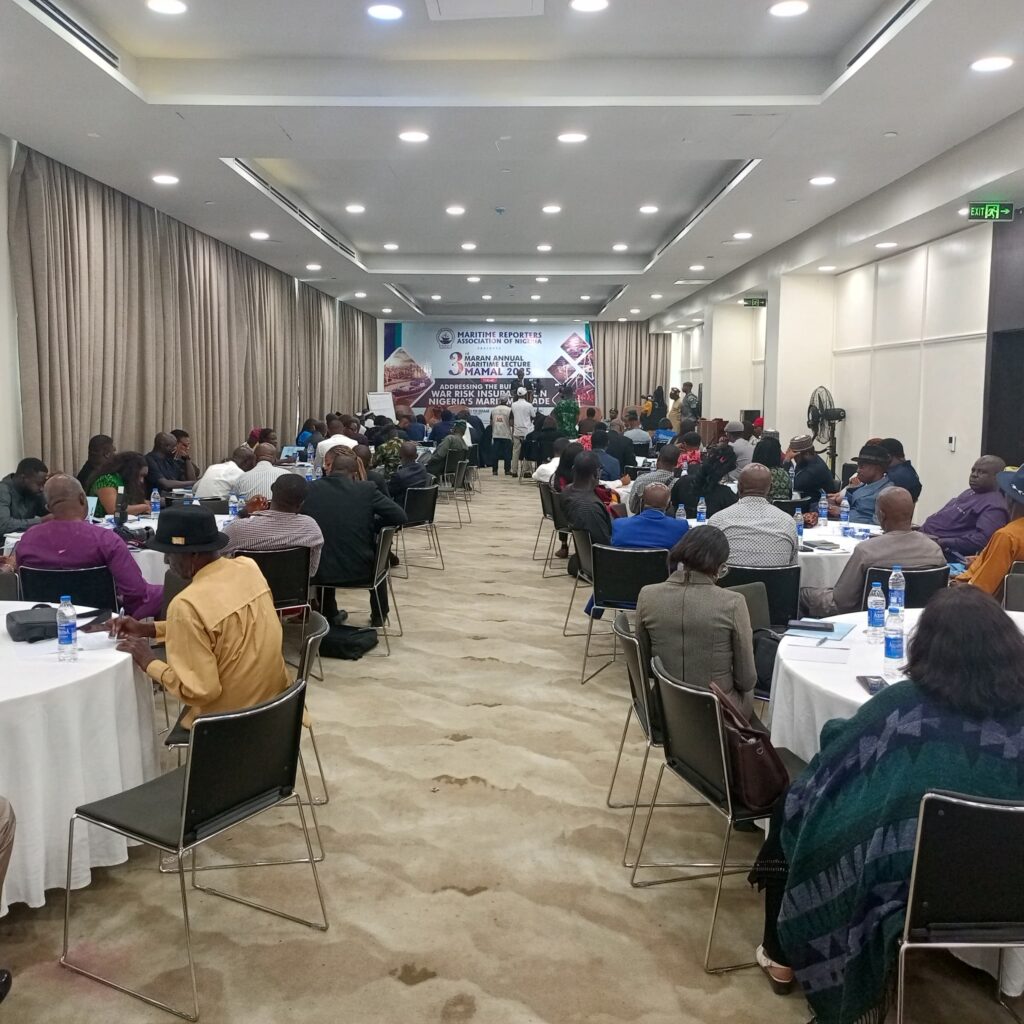
“Let this gathering be a catalyst for resilience and renewed global trust in Nigeria’s maritime potential,” he urged.
Present at the event are maritime stakeholders, security experts, and global partners who with a common voice —‘The sea is calmer now. It’s time the world noticed.’

